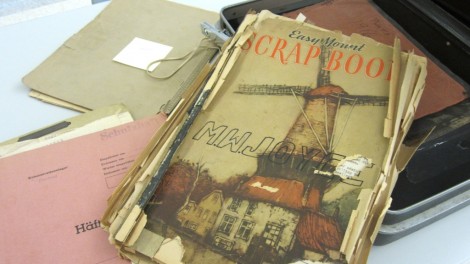
While cleaning out the old history office, Department Head Kevin Delaney found an old briefcase in the book room. He knew it had been in there for over ten years but hadn’t bothered examining it until the construction of the new school began.
While clearing out the book room, Delaney looked through the briefcase. Inside, Delaney found the belongings of former Lieutenant Colonel Martin W. Joyce, a World War II veteran.
Joyce was born in 1899 and was a lifelong resident in Boston. Joyce served as a state officer before serving in the war.
Delaney and his junior Honors United States History (HUSH) classes have been researching Joyce’s life. They found out that Joyce was an expert in radio communication. When America became involved in World War II, Joyce was deployed in the Pacific to help fight the Japanese. Between the years 1941 and 1943, Joyce was appointed as a higher-ranked officer, and was in charge of several prisoner of war camps in Northern Africa.
In the spring of 1945, Joyce was part of the army that liberated Dachau, one of the first concentration camps outside of Munich, Germany. A day after the liberation, Joyce was appointed the commander of Dachau for three months to make sure that the 32,000 people still living would regain their health and be repatriated. He is credited by many of the survivors for being the commander during this period.
“He’s an amazing guy. At that point he was 45 or 46 years old, which is astonishing to me, thinking about the burdens and responsibilities he had,” Delaney said.
When his shift was over in the summer of 1945, Joyce resumed his life in America and died in 1962. Somehow during that time, his briefcase found its way to Wayland High School.
There are various newspaper clippings, records, books and articles in the briefcase. One is a photo album that was given to Joyce by the survivors of the Dachau camp as an expression of their appreciation. The cover is a Yugoslavian flag made from cut up pieces of a prisoner uniform. There is also Joyce’s own personal scrapbook, hospital records, passes and Boston Globe articles.
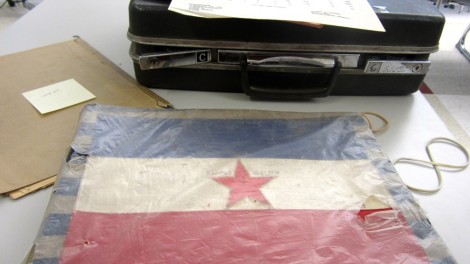
Through all of this research, Delaney and his classes hope to write an e-biography about Joyce, with different chapters of his life in the twentieth century.
When the project is completed it will be published online so that others can learn about Joyce’s life.
“It’s interesting to read all the documents and uncover this man’s life story,” said junior Julia Lavenson, a student in Delaney’s HUSH class.
A grant from the Wayland Public Schools Foundation gave Delaney and his classes a new high-tech scanner that allowed them to scan in fragile pictures and articles. An archivist from the New England Historical Genealogical Society came in to speak about how to handle and organize artifacts such as those found in the briefcase.
Although this is a huge project, Delaney is not abandoning the traditional course curriculum.
“We’re looking at the various chapters of American history through his life,” Delaney said.
“The project seems like a great experience to try something more hands-on in history rather than your typical paper or test,” said junior Angela Wang, a student in Delaney’s HUSH class.
The future destination of the briefcase is yet to be decided.
“Whether we finish it this year, or it may take two years, we’re going to find an appropriate place to house it. We’ll donate it somewhere, like a museum or university. But that will be up for the students to decide,” said Delaney.

![During the WHS club fair, senior Molly Bergeron is watching a student sign up for her club, Eliza J. Norton Foundation. In this club, students meet every week and come up with ideas to spread the message. "[This club] really touches a lot of people in the town," Bergeron said.](https://waylandstudentpress.com/wp-content/uploads/2025/10/IMG_1335-1200x800.jpg)



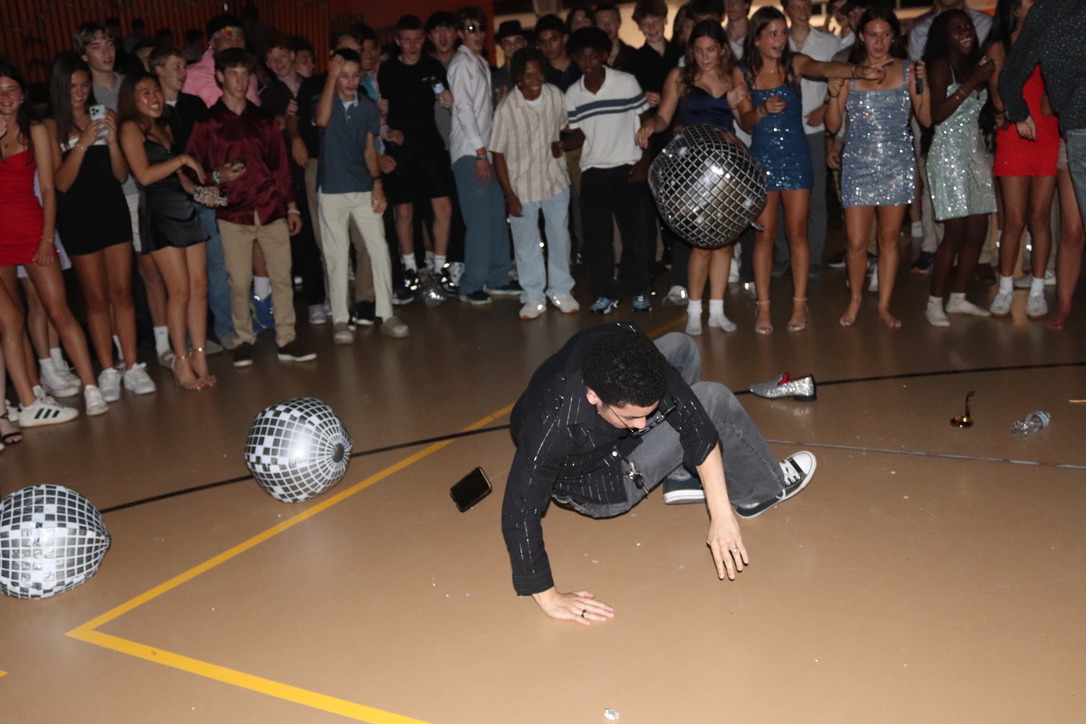









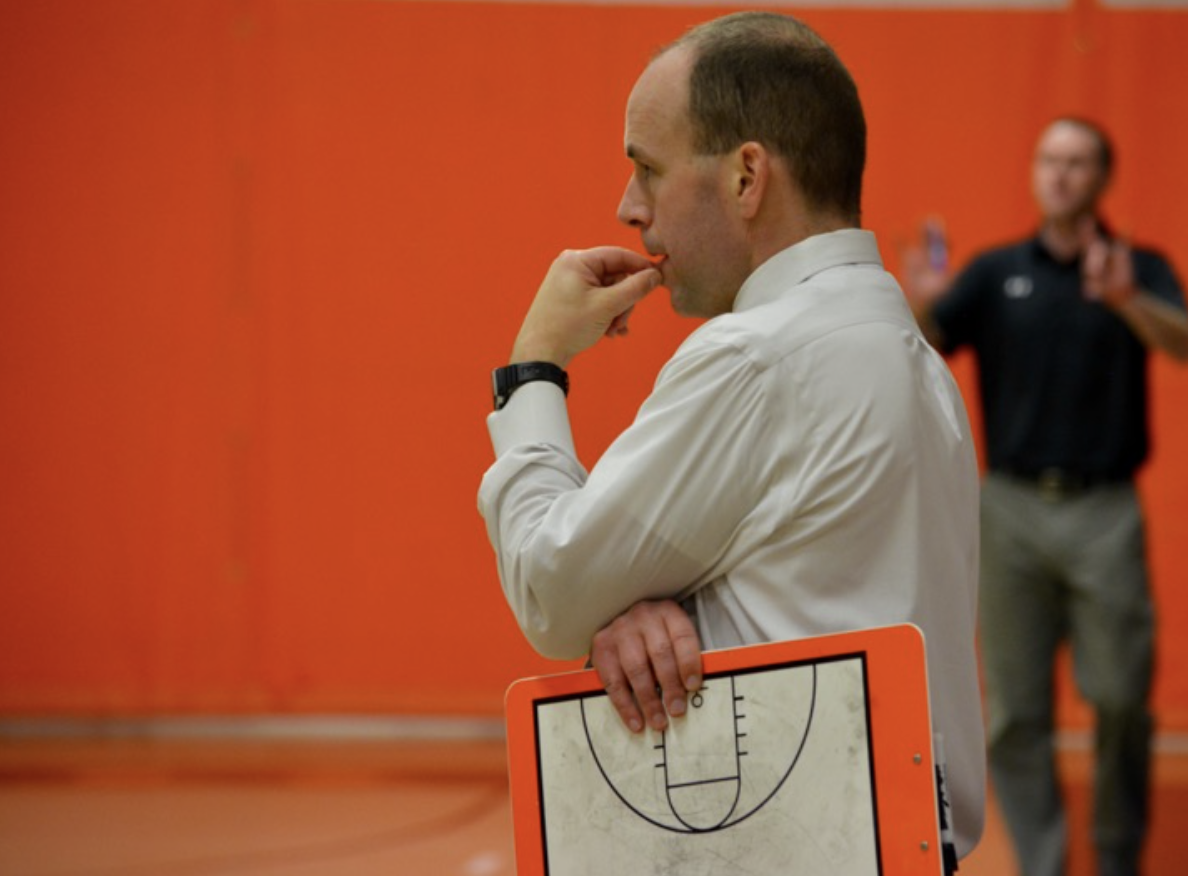











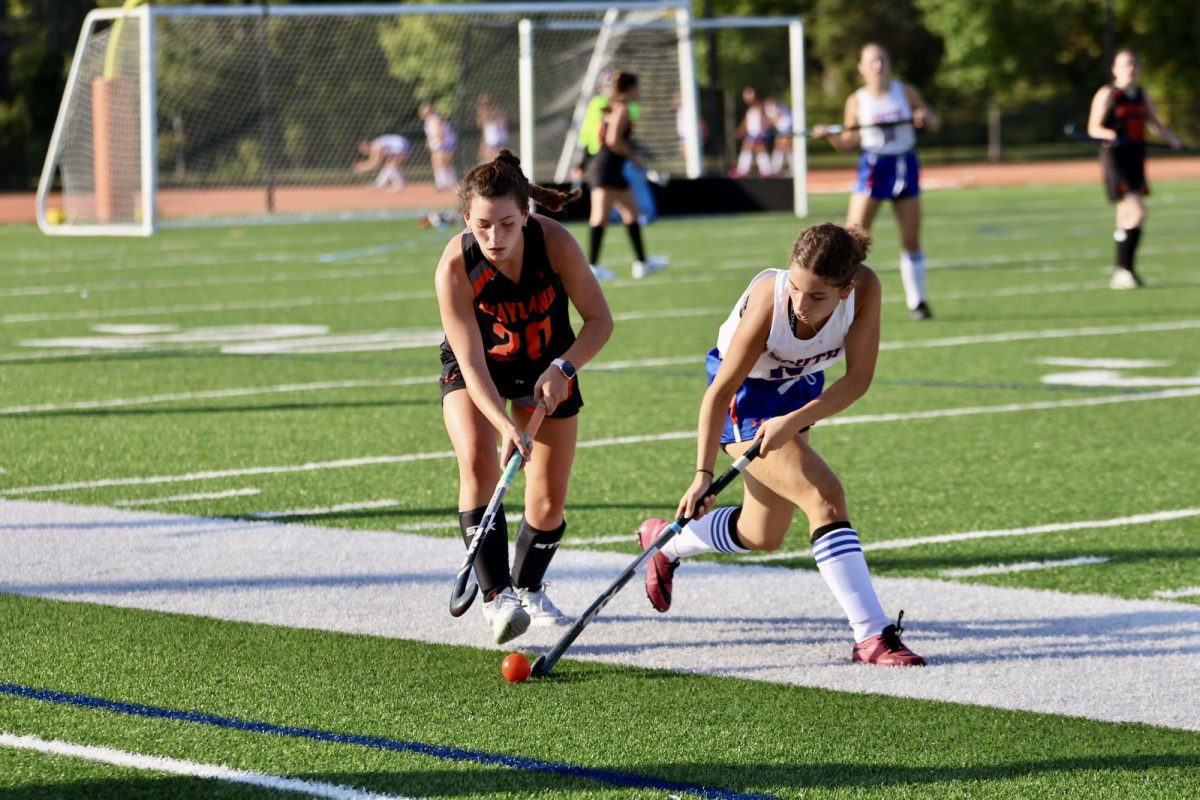

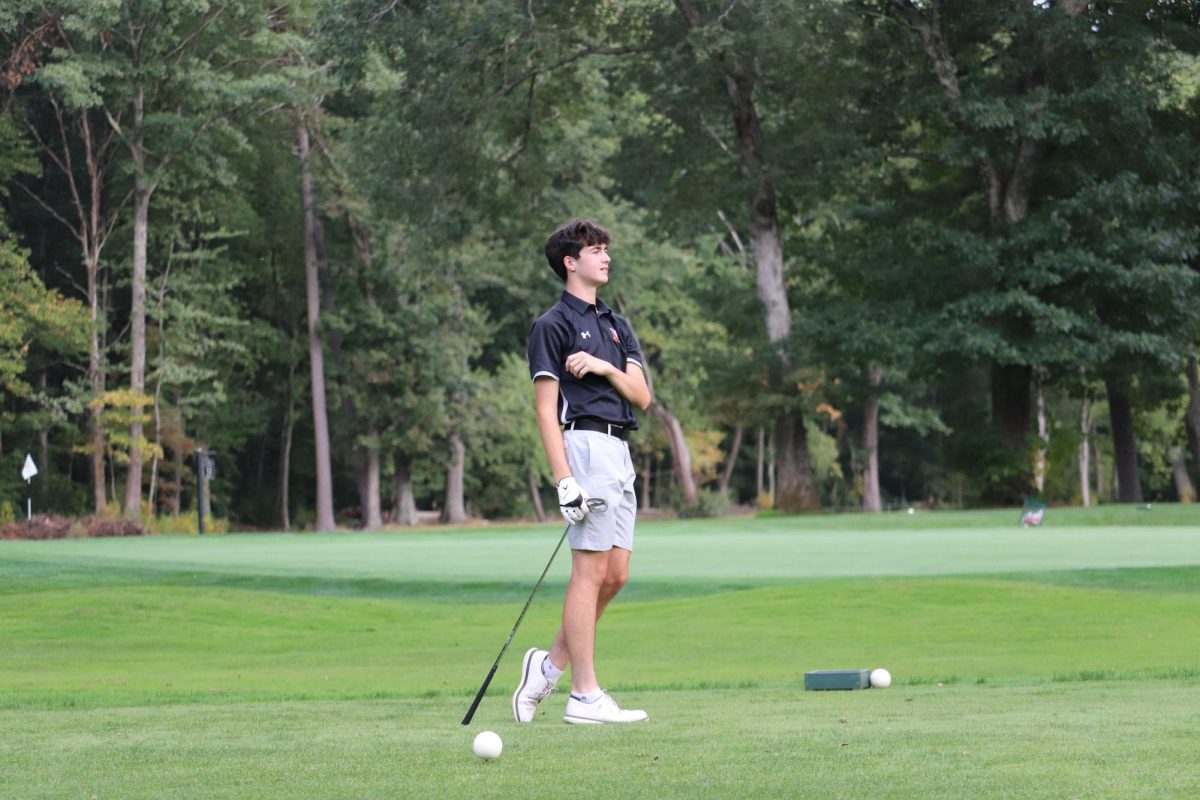
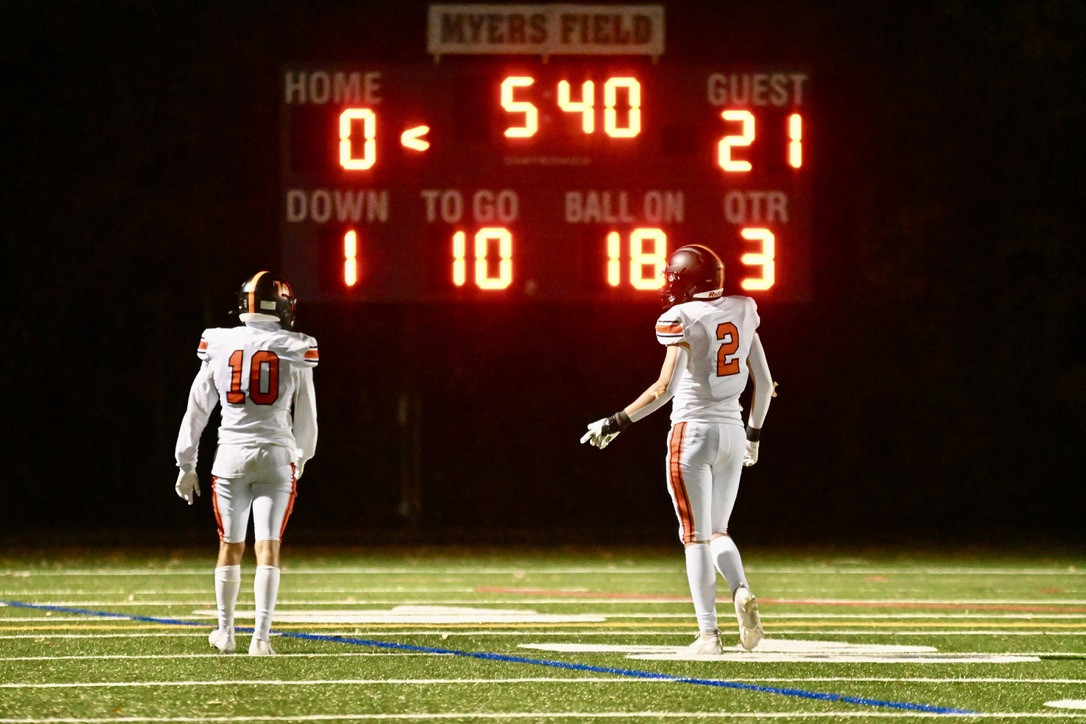


Arijan Goedewagen • May 4, 2012 at 10:11 PM
The brochure in the illustration is in English but the illustration and topic is clearly Dutch. Great timely and poignant
story.
Steinbeck • Apr 12, 2012 at 3:27 PM
this writing is horribly banausic. blah. blah. blah blah, and blah blah. blah blah blah blah blah, blah blah; blah blah blah blah blah blah blah.
John Clue • Apr 12, 2012 at 8:23 AM
The documents….they tell more than we could ever have expected….this…deeper than we ever thought…they're coming…I have to go…follow the eyes….THE EYES…